Amsterdam Criteria Lynch Syndrome
Amsterdam criteria lynch syndrome. One relative should be a first-degree relative of the other two at least two successive generations should be affected. Et al J Natl Cancer Inst. Of these 59 met both the Amsterdam I and Amsterdam II criteria.
Of these 59 met both the Amsterdam I and Amsterdam II criteria. It is a type of cancer syndrome. Therefore MSH6 mutation families are less likely to fulfil diagnostic criteria such as the Amsterdam II criteria AC II and the revised Bethesda guidelines rBG and will.
Revised Criteria for Hereditary Non-Polyposis Colorectal Cancer Lynch Syndrome Amsterdam Criteria 1991 Three or more relatives with colorectal cancer plus all of the following. The person has or had a second colorectal cancer or another cancer endometrial stomach pancreas small intestine ovary kidney brain ureters or bile duct linked to Lynch syndrome. Cancer of the endometrium small bowel ureter or renal pelvis.
One affected patient should be a first-degree relative of the other two. Cancers observed in significant excess in the first-degree relatives of Amsterdam criteria pedigrees included colorectal SMR 1010. The Amsterdam criteria are used in the diagnosis hereditary non polyposis colorectal cancer HNPCC.
Results A total of 202 families meeting Amsterdam criteria for Lynch syndrome accounted for 26 of all colorectal cancers in the state. The NCCN 2020 recommends that testing for Lynch syndrome MLH1 MSH2 MSH6 PMS2 EPCAM sequence analysis includes individuals who meet the Bethesda guidelines the Amsterdam criteria who have a cancer diagnosis prior to age 50 or have a predicted risk for Lynch syndrome greater than 5 on one of the following prediction models. Two successive generations of family members must be.
In Lynch syndrome the clinical phenotype in MSH6 mutation families differs from that in MLH1 and MSH2 families. Hereditary nonpolyposis colorectal cancer refers to patients andor families who fulfill the Amsterdam criteria. 95 CI 943-1081 endometrial SMR 589.
These guidelines were originally developed in 1990 in Amsterdam and were revised in 1999 in light of new information about genetics. Lynch syndrome refers to patients and families with a germline mutation in one of the DNA mismatch repair genes.
One of the first successful efforts of the International Collaborative Group on HNPCC ICG-HNPCC at its meeting in Amsterdam in 1990 was the establishment of a set of selection criteria for families with hereditary nonpolyposis colorectal cancer HNPCC Lynch syndrome to provide a basis for uniformity in collaborative studies Table 1.
Two successive generations of family members must be. Results A total of 202 families meeting Amsterdam criteria for Lynch syndrome accounted for 26 of all colorectal cancers in the state. Cancer of the endometrium small bowel ureter or renal pelvis. These guidelines were originally developed in 1990 in Amsterdam and were revised in 1999 in light of new information about genetics. The Amsterdam criteria are a set of guidelines used by practitioners to determine if a family is at risk of Hereditary Nonpolyposis Colorectal Cancer HNPCC also known as Lynch syndrome. Hereditary nonpolyposis colorectal cancer or Lynch syndrome is an autosomal dominant genetic condition that is associated with a high risk of colon cancer as well as other cancers including endometrial cancer ovary stomach small intestine hepatobiliary tract upper urinary tract brain and skin. Cancers observed in significant excess in the first-degree relatives of Amsterdam criteria pedigrees included colorectal SMR 1010. Hereditary nonpolyposis colorectal cancer refers to patients andor families who fulfill the Amsterdam criteria. Revised Criteria for Hereditary Non-Polyposis Colorectal Cancer Lynch Syndrome Amsterdam Criteria 1991 Three or more relatives with colorectal cancer plus all of the following.
The Amsterdam criteria are a set of guidelines used by practitioners to determine if a family is at risk of Hereditary Nonpolyposis Colorectal Cancer HNPCC also known as Lynch syndrome. The Amsterdam criteria are a set of guidelines used by practitioners to determine if a family is at risk of Hereditary Nonpolyposis Colorectal Cancer HNPCC also known as Lynch syndrome. Diagnostic criteria for Lynch syndrome Hereditary non-polyposis colorectal cancer HNPCC Revised Bethesda Diagnostic criteria Umar A. Cancer of the endometrium small bowel ureter or renal pelvis. Hereditary nonpolyposis colorectal cancer or Lynch syndrome is an autosomal dominant genetic condition that is associated with a high risk of colon cancer as well as other cancers including endometrial cancer ovary stomach small intestine hepatobiliary tract upper urinary tract brain and skin. 2004964261-8 - CRC diagnosed at younger than 50 years - Presence of synchronous or metachronous CRC or other Lynch syndrome-associated tumors1. Cancers observed in significant excess in the first-degree relatives of Amsterdam criteria pedigrees included colorectal SMR 1010.





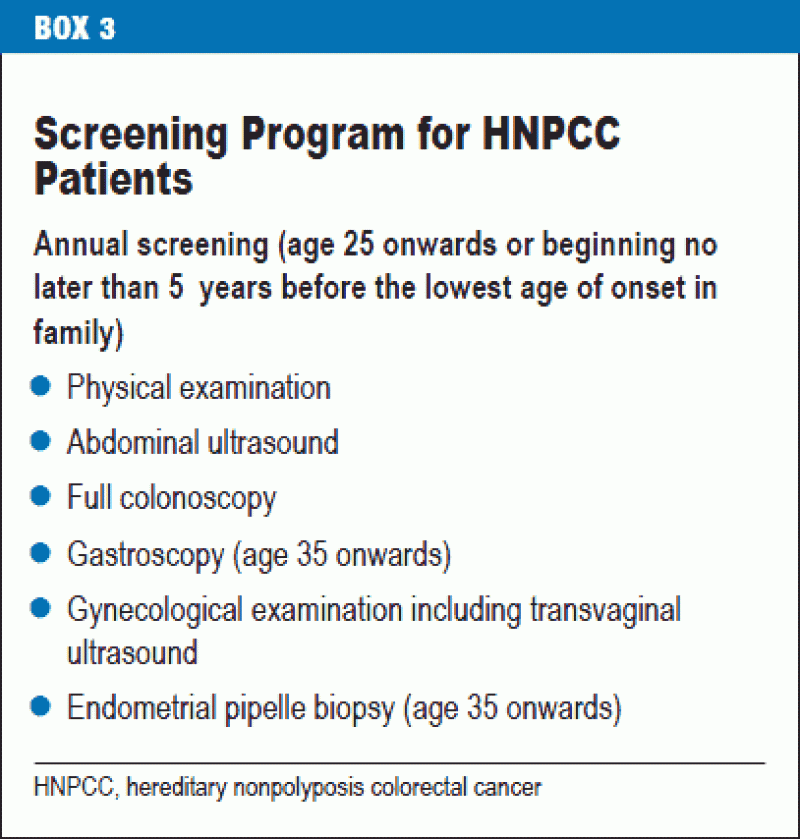


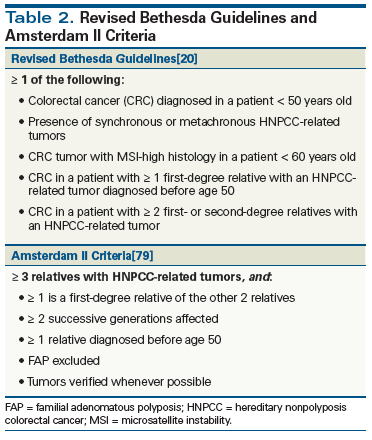


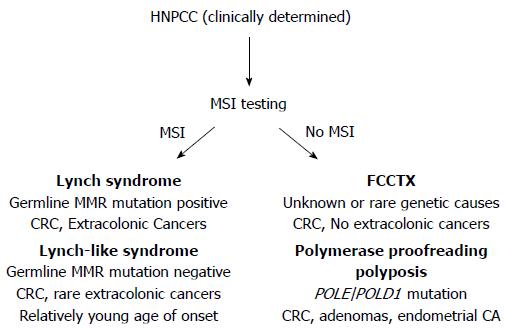
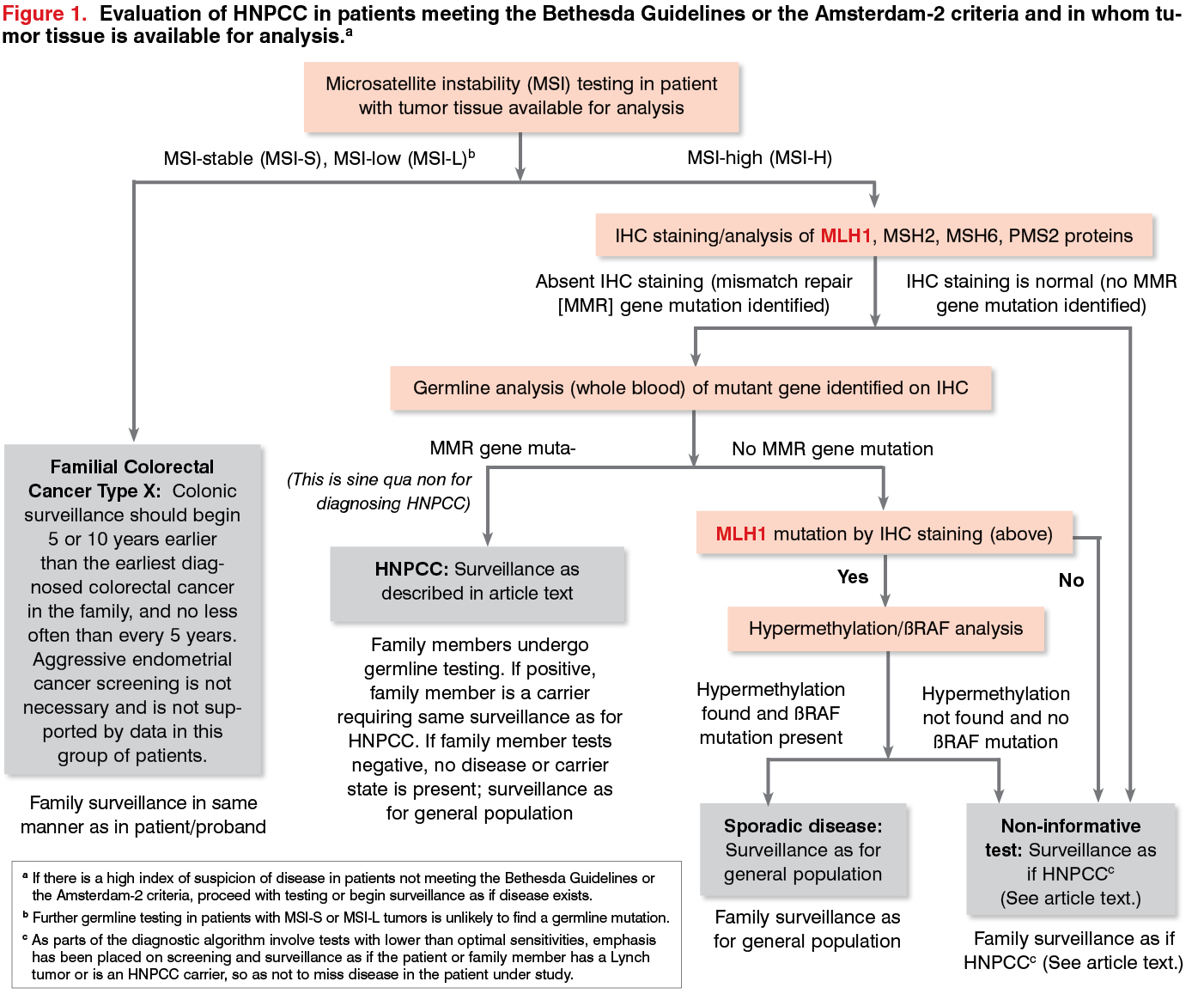

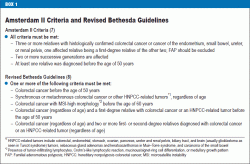
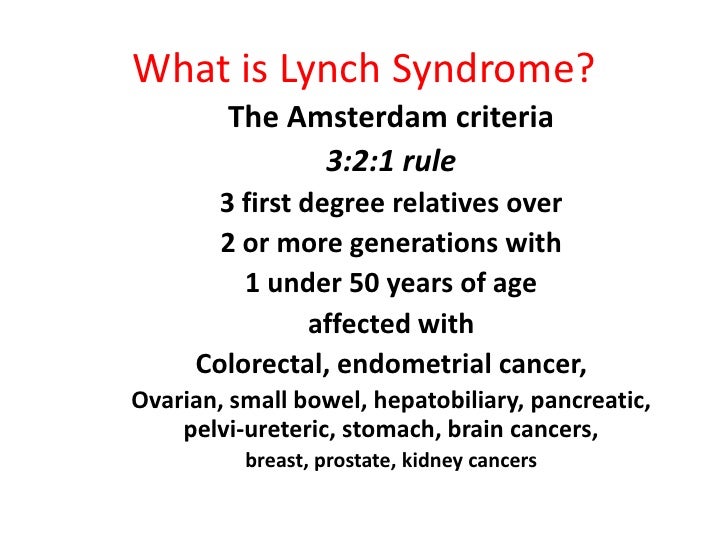


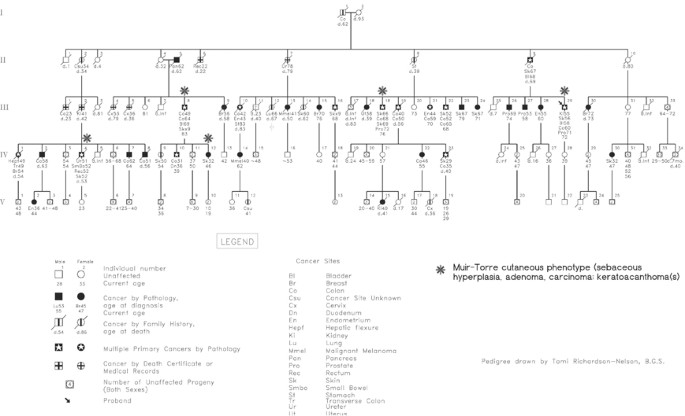





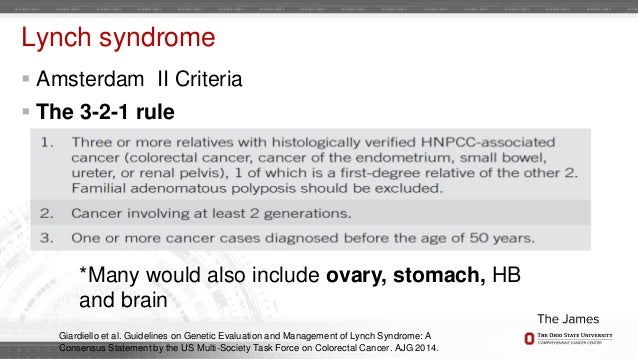





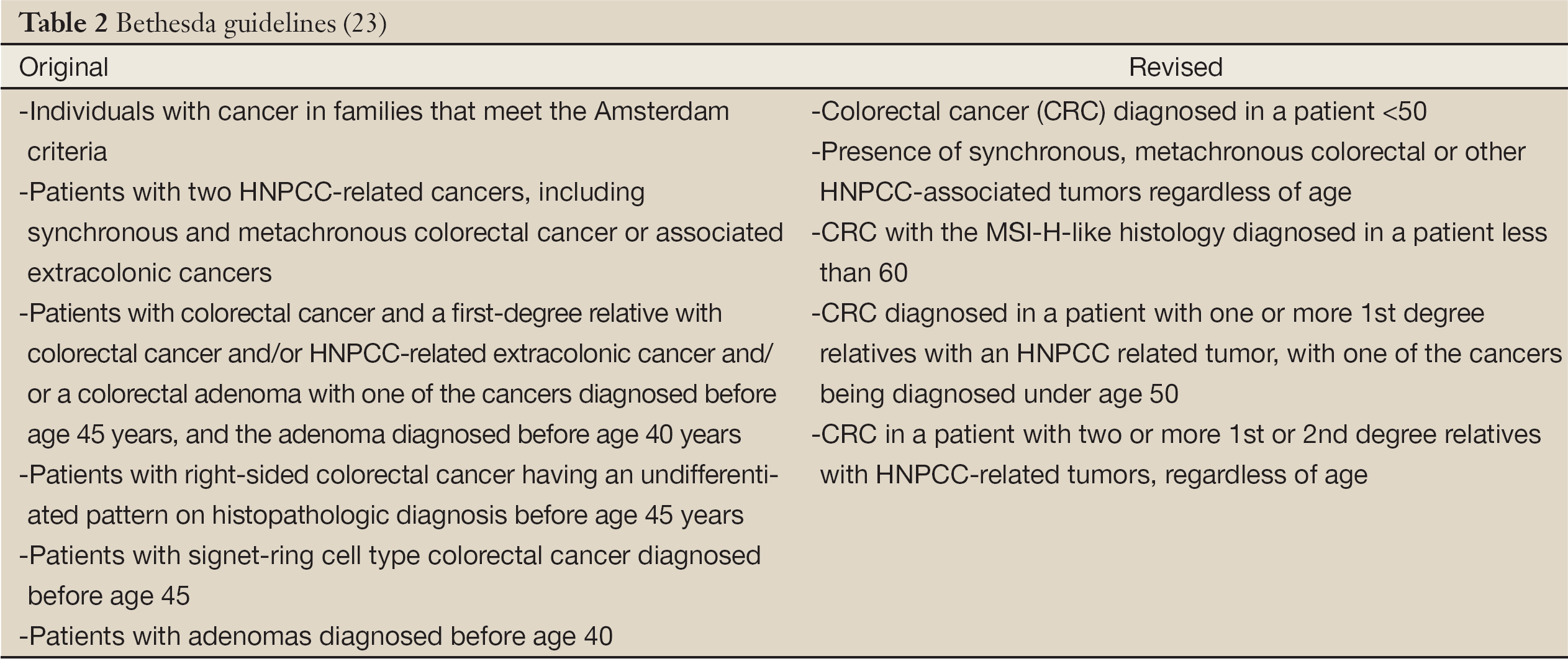

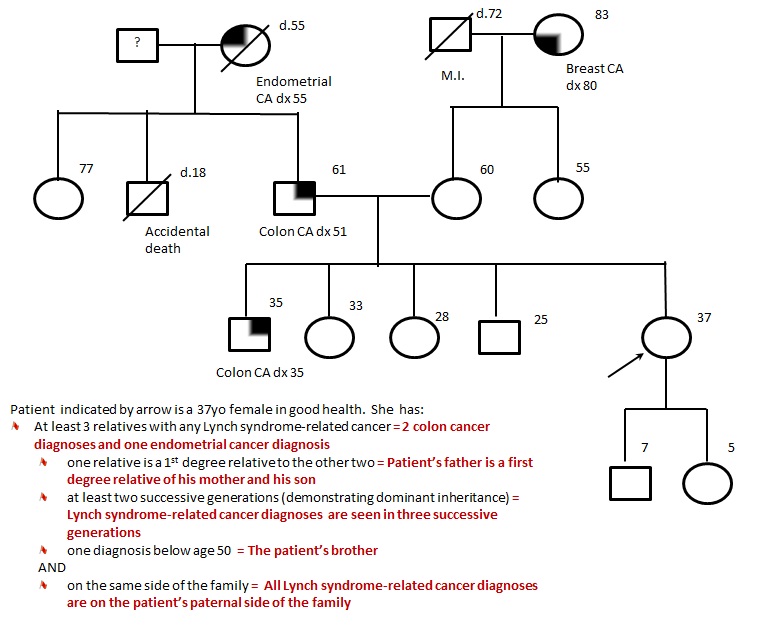

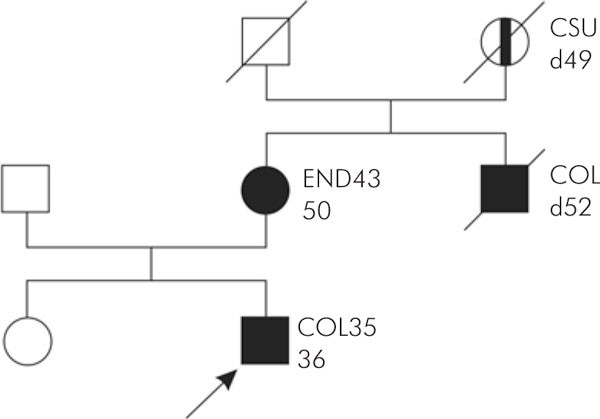

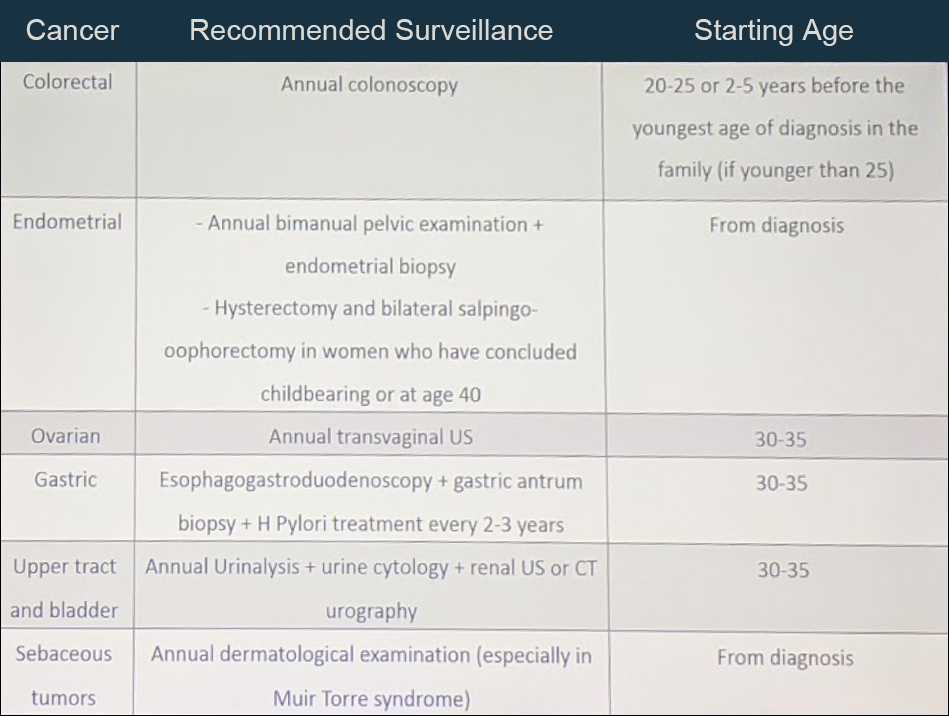
Post a Comment for "Amsterdam Criteria Lynch Syndrome"